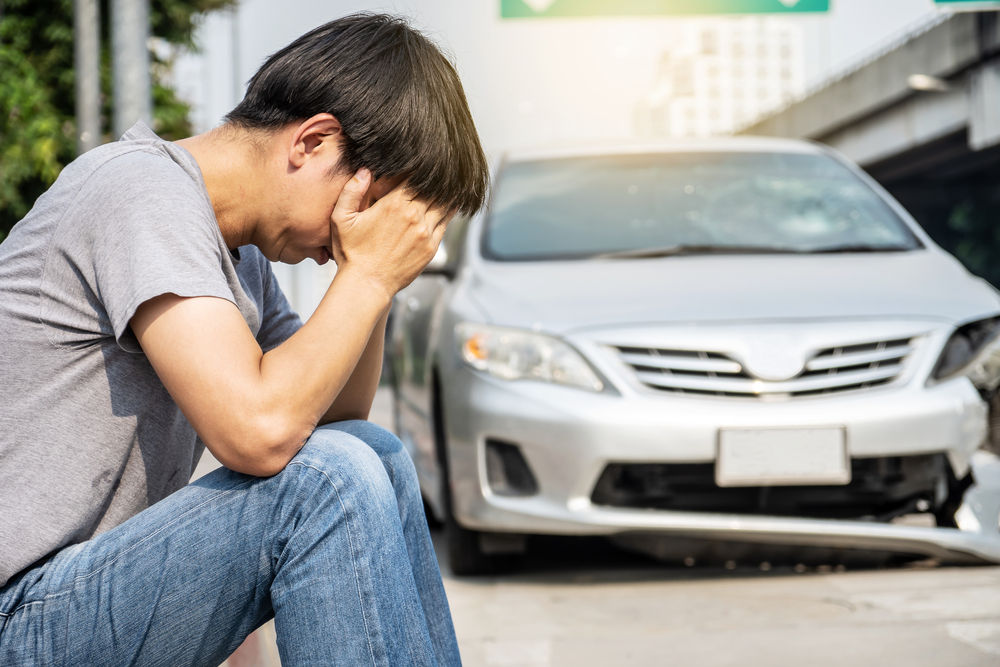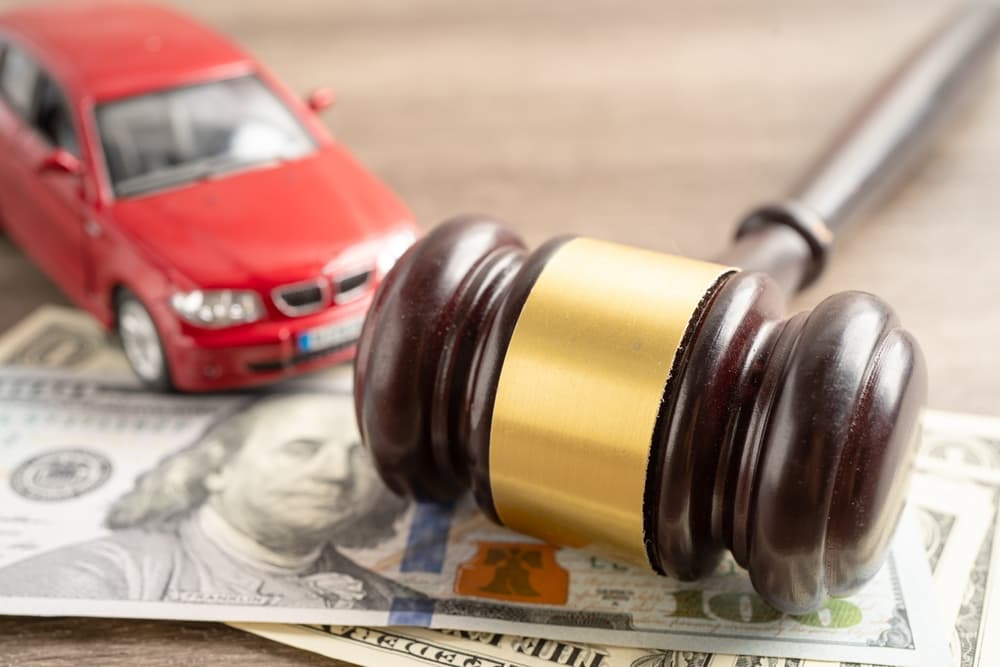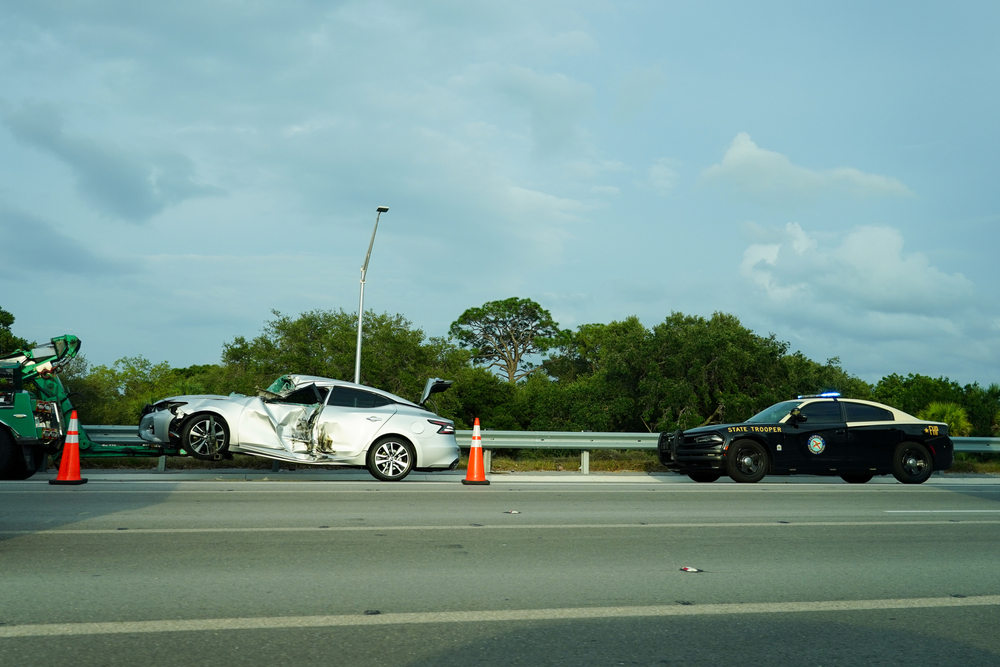A million thoughts may cross your mind simultaneously when you’re involved in a collision. Among these many thoughts, you may wonder how much does insurance go up after an accident? Getting into a car crash may affect your car insurance premium, depending on a few factors. Car insurance can be expensive enough as it is; a price increase can truly affect your finances.
After an accident, consult with a knowledgeable accident lawyer in New Port Richey. An attorney can handle your collision claim to not only prove the other driver’s fault and pursue compensation but also help prevent an increase in your auto insurance rates.
Car Insurance Is Mandatory in Florida
Car insurance isn’t simply a matter of choice—it’s a legal requirement for all drivers in the Sunshine State. Additionally, you must carry at least the state minimum to comply with Florida’s insurance laws.
In Florida, before you can register a four-wheeled vehicle, you’re required to provide evidence of Personal Injury Protection (PIP) and Property Damage Liability (PDL) auto insurance. PIP insurance covers 80% of all medically necessary expenses up to $10,000, regardless of who is at fault in an accident.
PDL insurance compensates for damages to someone else’s property inflicted by your insured vehicle, whether you or another person is driving.
You must obtain your PIP/PDL coverage from auto insurance companies licensed to offer policies in Florida or qualify for a self-insurance certificate issued by Florida Highway Safety and Motor Vehicles (FLHSMV) to provide valid proof of coverage.
If the authorities catch a driver without any insurance, they can face repercussions, including costly fines and jail time. Furthermore, if an uninsured party causes an at-fault accident, the victim can file a personal injury lawsuit against them to cover collision-related expenses and financial losses.
In addition to the state minimums, it’s a good idea to consider adding uninsured/underinsured motorist coverage, to your policy. This helps provide compensation in the event of a collision with a driver who has no insurance or too little insurance coverage.
The Importance of Car Insurance
Many think car insurance is useless – until they’re involved in an accident and regret not having insurance. Among the many reasons why car insurance coverage is crucial, the following are some of the most significant:
- Financial protection: When a driver causes a collision, they likely face financial liability. Without insurance, an at-fault driver will have to pay for the victim’s expenses out of pocket, which can be enough to result in financial ruin.
- Compensation: Depending on your state’s laws, you can rely on your own car insurance policy to provide monetary recovery for your injuries and damages.
- Protection for others: Car insurance may protect passengers and help pay for their accident-related expenses.
- Collision repairs: Your car insurance can help cover the costs of getting your vehicle repaired, which you will potentially have to pay for yourself without coverage, depending on the cause of the damage.
Having car insurance is always the best decision for yourself and others. While auto insurance premiums can seem like a financial strain, the cost of driving uninsured is too high to risk.
What Do Car Insurance Prices Depend on?
If you’ve shopped around to compare car insurance quotes, you may wonder how insurance companies determine the value of your policy coverage.
Generally, car insurance rates depend on several factors, including:
- The amount of protection: As expected, the more insurance coverage you have, the more expensive it will be. However, in some situations, you may need to pay for additional coverage. If you lease your vehicle, for example, your leasing company may have specific insurance requirements.
- Your location: Geographic location plays a significant role in insurance rates. If data shows your city has a high occurrence of accidents and insurance claims, this can make insurance more expensive.
- Your age: Unfortunately, age can dictate your insurance premiums. Typically, the younger the driver, the more expensive insurance can be, primarily because insurers know there is a higher likelihood of accidents among young, inexperienced drivers.
- Your driving record: Your driving record can either help or hurt your insurance rates. A cleaner driving record often means better premiums.
Note that insurance rates change yearly. Prices can fluctuate naturally, but certain factors, like accidents and policy changes, can cause a greater shift in price.
Why Do Car Insurance Rates Go Up After a Collision?
After an accident, it’s not uncommon for car insurance prices to go up. But why?
Risk is a magic word for car insurance companies. When a driver reports an accident, whether it’s their first or their fifth, this acts as a red flag for insurers. More auto insurance claims equal higher risk. This is particularly true if the insured caused the collision. After an accident for which the insurer’s policyholder was responsible, the insurance company increases rates to reflect the higher risk.
Insurance companies want to protect themselves. If their insured is likely to cause accidents, this means trouble for the insurer, as they’ll more than likely need to pay out for damages caused by their policyholder.
Therefore, the more an insurance company feels you’re a risk, the more inclined it’ll be to raise your rates.
How Much Does Car Insurance Go Up After an Accident?
Florida drivers might see increases anywhere from 22 percent to 77 percent, depending on the company, as rate changes also depend on the insurance company you have. Some insurance companies offer accident forgiveness programs. If you have this protection under your policy, your insurance rates may not increase after an accident.
What Factors Affect the Potential Increase of Car Insurance Premiums?
Many details come into play when an insurance provider determines whether to increase a policyholder’s premiums. Things like the city where the car is registered, a person’s driving record, and even a person’s credit score can affect insurance rates.
If you’re involved in a collision, the following factors help insurers figure out how the accident will affect your insurance rates.
The Severity of the Collision
First, insurance companies look at the severity of your accident. How did it happen, and what was the result? Typically, the worse the accident, the more injury and damage occur.
More serious crashes can mean trouble for insurance companies. If their insured causes a bad accident, this can mean more money out of the company’s pockets, which can, in turn, mean higher insurance rates to balance it out.
Driving Record
Generally, a bad driving record can have a serious impact on insurance premiums. Car insurance companies are wary of insuring drivers who have a bad driving history.
After an accident, insurance companies can review the collision along with the insured’s record. If the record is negative, this can give insurers more incentive to raise rates.
Fault for the Accident
Fault in a collision is huge for insurance companies. After all, no matter how carefully a person drives, some accidents are simply unavoidable when caused by a negligent driver. When an insurance company’s policyholder is deemed not at fault for an accident, the insurer may decide against raising premiums.
If the Insurance Company Increases Prices, When Do They Eventually Decrease?
When insurance companies increase premiums, drivers may not need to deal with steep prices forever. However, when and if prices drop usually depends on the severity of an accident and how long the insured goes without reporting another car crash.
Usually, when a policyholder goes a few years without any accidents or incidents on their driving record, insurers may lower premiums.
Because every insurance company is different, asking your insurer how price changes work after an accident is usually a good idea.
Do You Need to Report Your Accident to Your Insurer Even if You’re Not at Fault?

Yes. Even if you know for a fact you did not cause your collision, you must still report your accident. Insurance companies want to know if their insured vehicle has been in an accident, and filing an insurance claim can help get you compensation.
Car Insurance Companies Require Timely Accident Reports
Insurance companies typically require their policyholders to report their accidents. The timeline in which insurers want to know about collisions should be within your policy. Some insurance companies just want their insureds to “promptly” contact them after an accident, while other companies provide specifics, like “within seven days.”
After an accident, let them know. If you hire a lawyer after your collision, they can communicate with your insurance company for you. This is always a wise move.
Reporting Your Accident Gets the Collision Claim Process Going
After a car crash, you can file a claim for compensation. If you file a claim under your insurance, reporting your accident can get the process started. Your insurer can quickly assign an adjuster to your case to investigate your accident and handle related tasks.
Which Insurance Policy Do I Use to File an Accident Claim?
Whether you file a claim under your policy or the other driver’s insurance depends on your state’s fault laws. States operate under fault or no-fault car insurance laws. In a no-fault state such as Florida, you can file a collision claim under your insurer for financial help. It’s still important to determine fault. If, after an investigation, you find the other driver is liable for your accident, your insurance company might then seek reimbursement for the money they previously paid out to you.
If you are a Florida resident and you get into an accident outside of Florida, you need to determine who to blame to pursue compensation. A car accident attorney can help you understand your state’s laws and make decisions on how best to pursue the monetary recovery you need.
Is a Car Insurance Claim the Only Way to Obtain Compensation After an Accident?
No, a car insurance claim is not your only option for obtaining fair compensation. In many cases, a collision claim is all it takes. Your lawyer can negotiate with the insurance company to reach a favorable outcome.
If the insurance company puts up a fight and either denies your claim or refuses to settle for the compensation that you’re entitled to, your car accident attorney may decide it’s necessary to file a personal injury lawsuit.
Also, if the at-fault driver has no car insurance protection, filing a lawsuit against them may be your best bet at pursuing financial recovery. After a car crash, you may have options. Your car accident lawyer can explain these to you and create a feasible legal strategy.
How a Lawyer Can Prevent Car Insurance Rate Increases
Car insurance premium increases after an accident often depending on who was at fault for a collision. Thus, proving the other party’s liability can help you get compensation while also keeping your insurance rates the same.
Experienced car accident attorneys have the right skills and resources to determine who is responsible for your car crash and build your case against the at-fault party. This usually means satisfying the required elements of negligence—duty, breach, causation, and damages—and presenting irrefutable evidence.
Good evidence varies based on the details of your accident but often includes police reports, medical records, and witness statements. Your lawyer can determine what pieces of evidence they need to obtain to best strengthen your claim.
A car accident attorney can do so much for your claim. From investigating your accident, calculating your damages, negotiating with the insurance company, and representing you in and out of court, you can trust your lawyer to do it all.
One positive and sometimes unexpected result of having an attorney handle your claim is reflected in your insurance premiums. When you have a car accident lawyer represent you, they’ll do everything necessary to prove the other party’s fault and clear your name, which can result in dodging car insurance price increases.
Contact an Experienced Car Accident Attorney as Soon as Possible After an Accident

After a car accident, do not wait to speak with a lawyer. A collision lawyer can give you advice and guidance and determine how to approach your claim for the best results. If you fear how your accident may impact your insurance, discuss your concerns with your lawyer. Your car accident lawyer can detail all the ways they’ll work diligently to handle your case and try to prevent unnecessary increases in your insurance rates.



